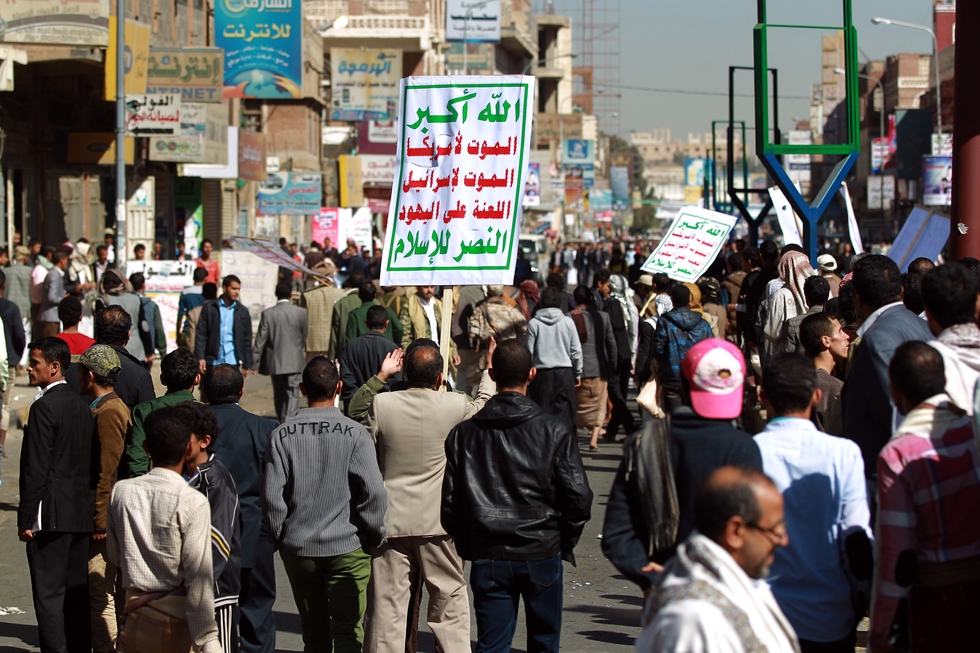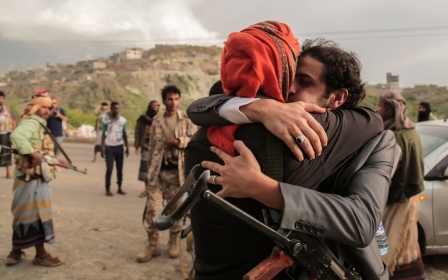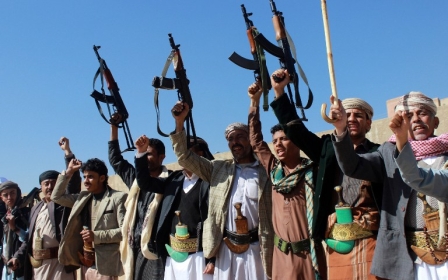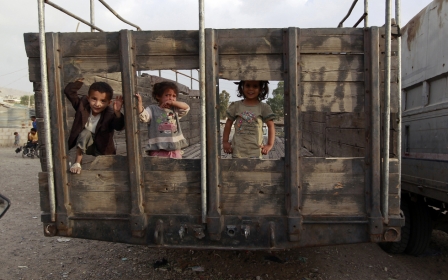Houthis apologise to US over use of 'Death to America' slogan

Yemen’s Houthi rebel movement have given the United States a “sincere apology” for its infamous slogan “Death to America,” according to a pan-Arab newspaper.
Al-Quds al-Arabi reported on Wednesday that the apology was made during a meeting between the two sides in Kuwait on Tuesday evening.
Anti-government Houthi forces and the official government of Yemen are in Kuwait attending UN-brokered peace talks that started on 21 April.
The Houthis overran the capital in late 2014, before advancing into other parts of Yemen, prompting a Saudi-led coalition to intervene in March last year.
Their full slogan is: “God is the Greatest, Death to America, Death to Israel, Curse the Jews, Victory to Islam.”
According to al-Quds al-Arabi, the explanation the Houthis gave for using the slogan was that it was for "domestic consumption as a means to attract support in the streets and create a common cause between their supporters to keep them united".
The meeting where the apology was given, which was said to have taken place in a friendly atmosphere, was attended by US Under Secretary of State Thomas Shannon and the UK government's special envoy to Yemen Alan Duncan.
The paper quoted sources close to the talks as saying that Hamza al-Houthi, the head of the Houthi delegation, reaffirmed to the American representative that the Houthis would withdraw from Yemeni cities and hand over their weapons – without saying to whom the weapons would be handed over.
He was quoted as saying: “We consider this a token of friendship to America.”
The UN says more than 6,400 people have been killed in Yemen since March 2015.
The fighting has also driven 2.8 million people from their homes and left more than 80 percent of the population in need of humanitarian aid.
Middle East Eye propose une couverture et une analyse indépendantes et incomparables du Moyen-Orient, de l’Afrique du Nord et d’autres régions du monde. Pour en savoir plus sur la reprise de ce contenu et les frais qui s’appliquent, veuillez remplir ce formulaire [en anglais]. Pour en savoir plus sur MEE, cliquez ici [en anglais].




